Ashley Swift always viewed her father as a supportive, thoughtful parent.
He showed her how to change the oil in her car. He helped her land her first job, she said, then ferried her between there and home. When it was time for college, they talked through the pros and cons of attending right after high school.
But two years ago, David Swift, 56, was charged with murder in the killing of someone else who had an outsized influence on Ashley’s life: his wife — Ashley’s mother. Karen Swift’s mysterious and violent death had remained unresolved for more than a decade, and Ashley, then 20, was baffled by her father’s arrest.
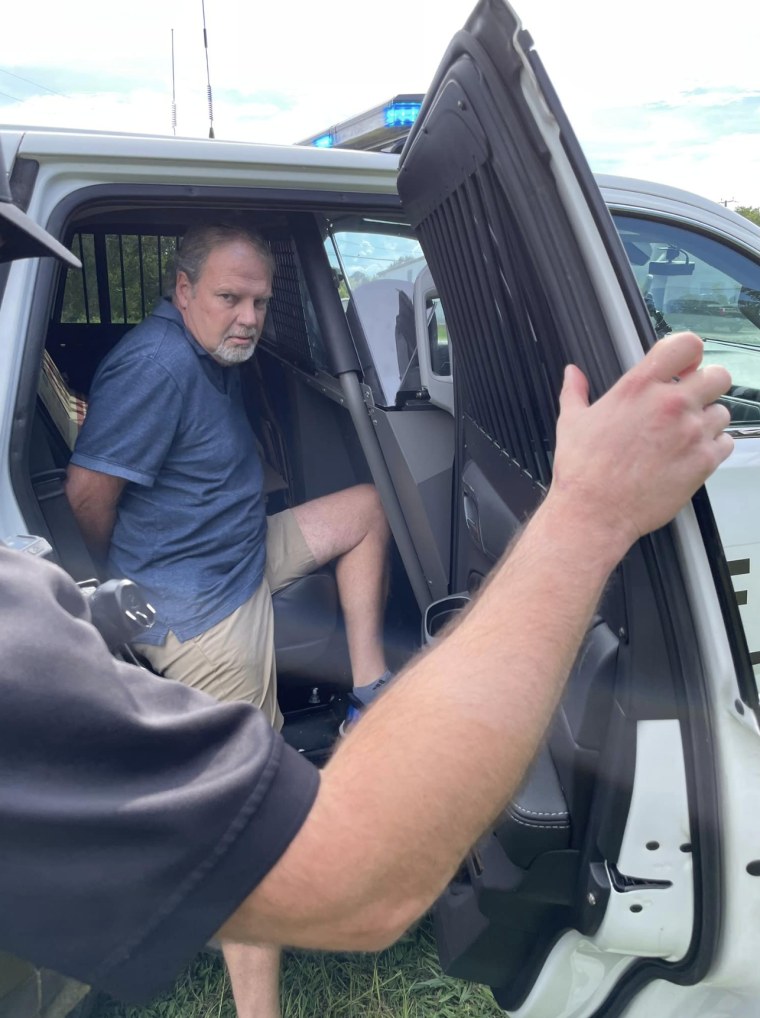 David Swift's arrest.Dyer County Sheriff's Office
David Swift's arrest.Dyer County Sheriff's OfficeThen came another development. David, who has maintained his innocence, was acquitted at trial earlier this year of the most serious charges — first- and second-degree murder. But the jury was deadlocked on the lesser crime of manslaughter. Weeks after a judge declared a mistrial in the case, David was indicted on a manslaughter charge and remains in jail awaiting a new trial.
The ordeal has lasted more than half of Ashley’s life.
“It’s something that at first, is very difficult, and it still is difficult, but I feel like over time you cope with things,” she told “Dateline.” But “over and over and over, everywhere I go, every school I went to, every workplace I’ve worked — it comes up.”
For more on the case, tune into "After the Halloween Party" on "Dateline" at 9 ET/8 CT tonight.
Two turbulent decades together
Karen, a 44-year-old mother of four, vanished Oct. 30, 2011, after picking Ashley up early from a sleepover and falling asleep with her at their home in Dyersburg, a small town roughly 80 miles north of Memphis, Dyer County District Attorney Danny Goodman told the jury in May.
Shortly after, Karen’s SUV was found nearby with a flat tire, as were her two phones. Both of them had been damaged, Terry McCreight, chief investigator with the Dyer County Sheriff’s Office, told “Dateline.”
In interviews with local authorities, David said he wanted to help however he could and detailed the couple’s turbulent two decades together, recordings show. They’d had two children after marrying in 1989, then divorced after he had an affair, he said. They later remarried and had two more children — including Ashley — before Karen had an affair, David said.
When she went missing, David believed she was having a midlife crisis.
She’d started drinking, sometimes heavily, he said, and partying with new friends. Weeks before her disappearance, he said, she’d served with him divorce papers.
Even though he believed she was “lost,” he said in one of the interviews, “I still love her and care about her.”
While David told authorities Karen appeared to have withdrawn from their relationship, her friends told “Dateline” that in the last months of her life she’d become more independent, social and confident.
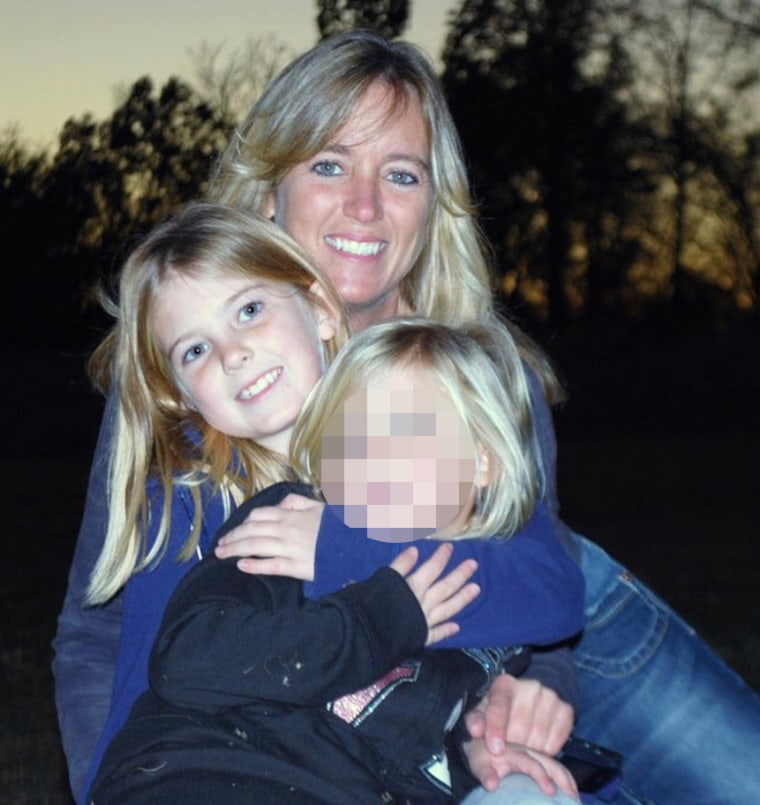 Karen Swift with Ashley and her younger daughter.Dateline
Karen Swift with Ashley and her younger daughter.DatelineTo Ashley, who was 9 at the time, her mother was a parent who went to every game and every dance competition — “all the things, she was there,” Ashley said. Though she also noticed a change in her mother, she said. Karen was going out so often, Ashley recalled, that she tearfully pleaded with her mother to stay home.
Short on evidence
Six weeks after Karen disappeared, her remains were found near a local cemetery, Dyer County Sheriff Jeff Box told “Dateline.” The medical examiner determined that she died from blunt force trauma to the head.
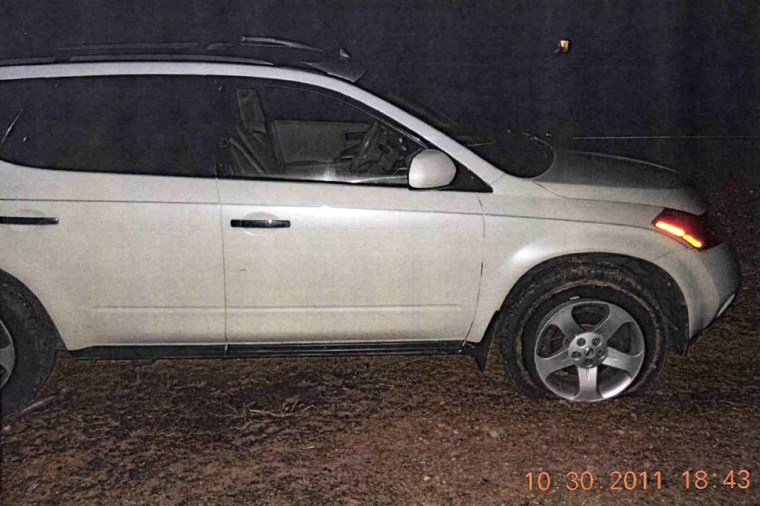 Karen Swift's SUV with a flat tire.Dateline
Karen Swift's SUV with a flat tire.DatelineAuthorities focused on what they viewed as possible evidence linking David to the killing. Karen had obtained one of her two phones to avoid being monitored by her husband and had sought to keep it secret from him, Goodman said at trial. David told investigators he didn’t know about Karen’s second phone, but authorities found the device’s number programmed into David’s work phone, the prosecutor said.
And during his interview with authorities, McCreight said, David seemed unable to focus on anything besides his wife’s behavior.
“That was just a sign to me that this guy is hiding something,” McCreight said. “He’s covering something up.”
Despite those suspicions, there was no physical or eyewitness evidence linking David to the homicide. The investigation stalled.
David moved to Alabama and remarried, Ashley said, and her father remained an involved parent, taking her to her grocery store job and teaching her to work on her Jeep. As Ashley got older, she said she wanted to know more about what happened to her mother but grew increasingly hopeless at that prospect.
“I got to an age where I realized that I would never know what happened,” she said.
Trying to put a puzzle together
Two years ago, when David was arrested and charged in her mother’s killing, Ashley recalled how distraught she was over the development. Her father and stepmother had split up, she said, which left Ashley scrambling to find care for her younger sister. She was also confused.
“I was trying to figure out why,” she said.
Goodman, the prosecutor, said he believed his predecessor had been waiting for evidence that would make the case against David a “slam dunk.” But four years ago, the Covid pandemic prompted a slowdown in cases that gave prosecutors time to review 30 large bins of files in Karen’s killing, Goodman told “Dateline.”
They didn’t uncover what Goodman called the “one big thing” that could be used in the effort to prosecute David, he said. What they found instead, he said, was a puzzle with a clear motive.
“I think he saw that he was losing control,” Goodman said. “Because in the past, he was able to control everything that Karen did, everywhere she went.”
“He saw that was starting to slip away,” Goodman added.
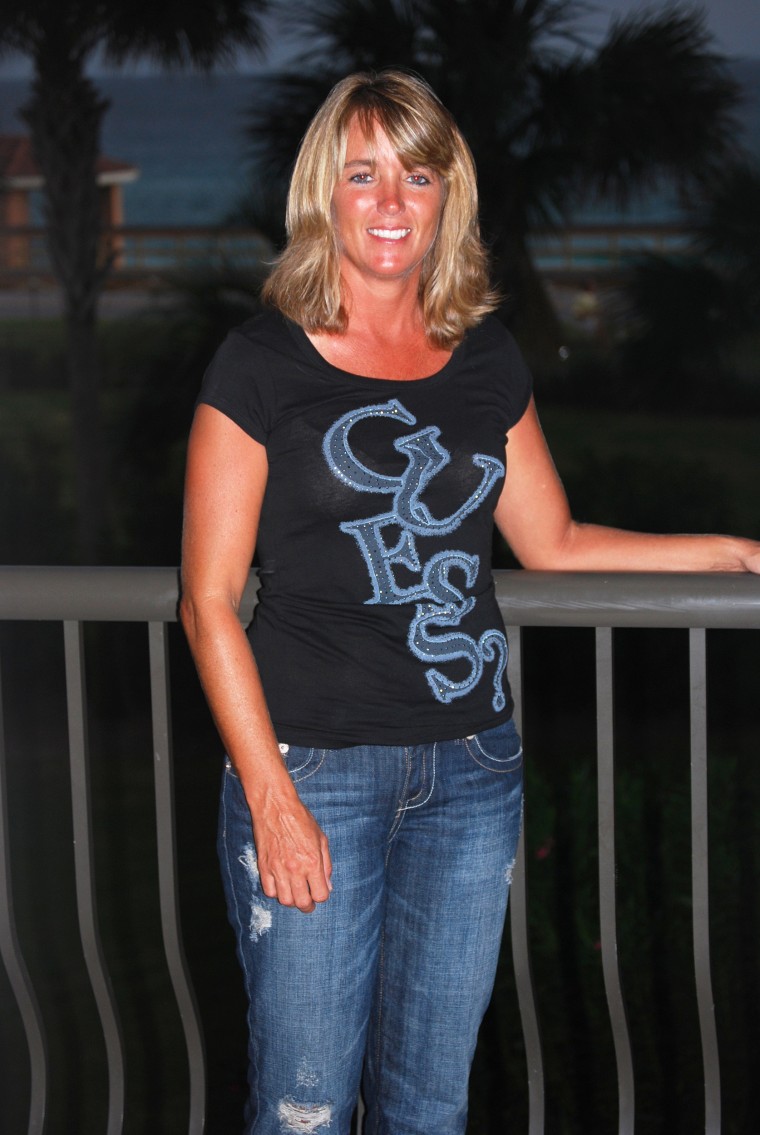 Karen Swift.Dateline
Karen Swift.DatelineDavid was so furious over Karen’s drinking, partying and the impending divorce that he violently plotted her death, prosecutors said when they tried the case earlier this year.
After Karen returned home from picking Ashley up, Goodman said, the two had fallen asleep in the same bed. Goodman alleges that at some point that night, David put Ashley in the same room as her younger sister, then dragged Karen from her bedroom to the garage.
The medical examiner had attributed Karen’s cause of death to a skull fracture that came from being stomped on, and in court, Goodman told the jury that David had used such violence in the assault that the fatal blow “caved her skull in.”
Then David allegedly loaded Karen into a car, dumped her body at the cemetery and staged the crime to make it appear that she’d been abducted, Goodman said.
At trial, prosecutors detailed the circumstantial evidence uncovered more than a decade ago — the possible lie about Karen’s secret phone and David’s “demeaning” comments about Karen to investigators — and said there was no evidence that she planned on going back out after she picked up Ashley. Karen’s autopsy showed that she’d taken a sleep aid, prosecutors said, and her phones were inactive after she got home.
Prosecutors also raised an important new detail about Karen’s secret phone. Although there was no activity on her devices after she got in bed with Ashley, a forensic extraction found that someone used the secret phone hours later to call the device’s voicemail, prosecutors said.
That call was made at 9:55 a.m. Oct. 30 while the phone was connected to the family’s home Wi-Fi, Dyer County Assistant District attorney Tim Boxx told the jury. Karen was already missing at that point, but her phones had not yet been found.
“We know there was one adult in the Swift home at 9:55 in the morning,” Boxx said.
Calling the evidence into question
In court, defense lawyer Daniel Taylor said David was not overly controlling, but genuinely concerned about his partner.
There was no evidence to support the state’s description of the murder, Taylor said — no blood in the garage or car and no evidence that David ever left the house. Even the medical examiner, who’d provided Karen’s cause of death, told the prosecutor he no longer believed she’d been fatally stomped, Goodman told “Dateline.”
The conclusion that a phone call was made inside the Swifts’ home that Saturday morning was based on unreliable evidence, Taylor said. He added that David’s physical condition would have made it impossible to commit the kind of crime Goodman alleged. At the time of Karen’s death, David had reinjured his knee and was on crutches, Taylor said.
At trial, David’s physical therapist testified that he would have had extreme difficulty walking and lifting. (Goodman accused David of faking the reinjury and said he was seen moving hay bales the day before the killing.)
Ashley, who testified at trial, also disputed the prosecutor’s allegations. It was not David who moved her that night, she testified. It was her mom.
“I will go to my grave knowing that it was my mother,” she told “Dateline.”
Ashley believed that her father’s injury was the single strongest piece of evidence to cast doubt on the prosecution’s case. Her mother was athletic, Ashley said, and she couldn’t imagine someone in her father’s condition easily overtaking and moving her.
After five days of testimony and two days of deliberation, the jury reached its decision, acquitting David of murder but remaining deadlocked on the manslaughter charge. A date for his retrial has not been scheduled.
Ashley, now a dental hygienist in Alabama, recalled the difficulty of awaiting the verdict and — once it had been delivered — initially believing the case was over. Then she learned that it wasn’t. David is innocent, Ashley said, and she believes her father is being falsely imprisoned while awaiting a new trial.
That reality has left her struggling to move on.
“I want justice for my mom, and I want my dad home,” she said. “But I want to live a normal life.”
Tim Stelloh is a breaking news reporter for NBC News Digital.

 2 settimane fa
24
2 settimane fa
24







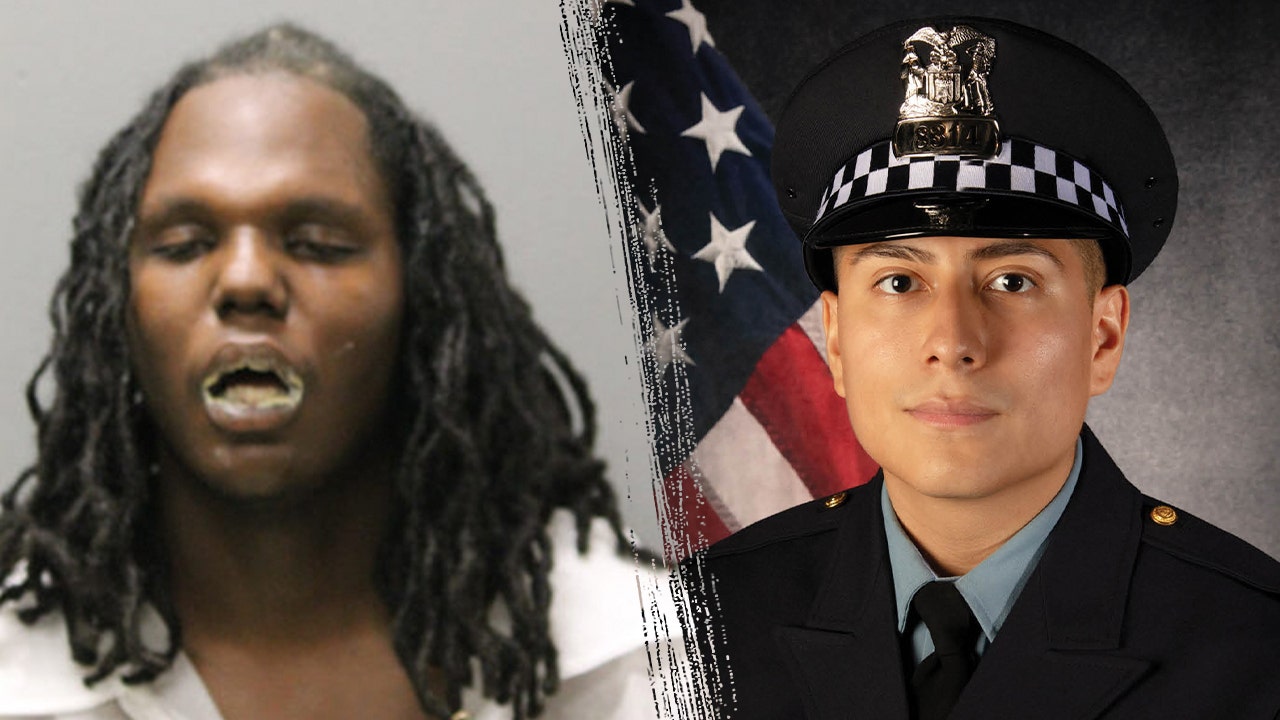
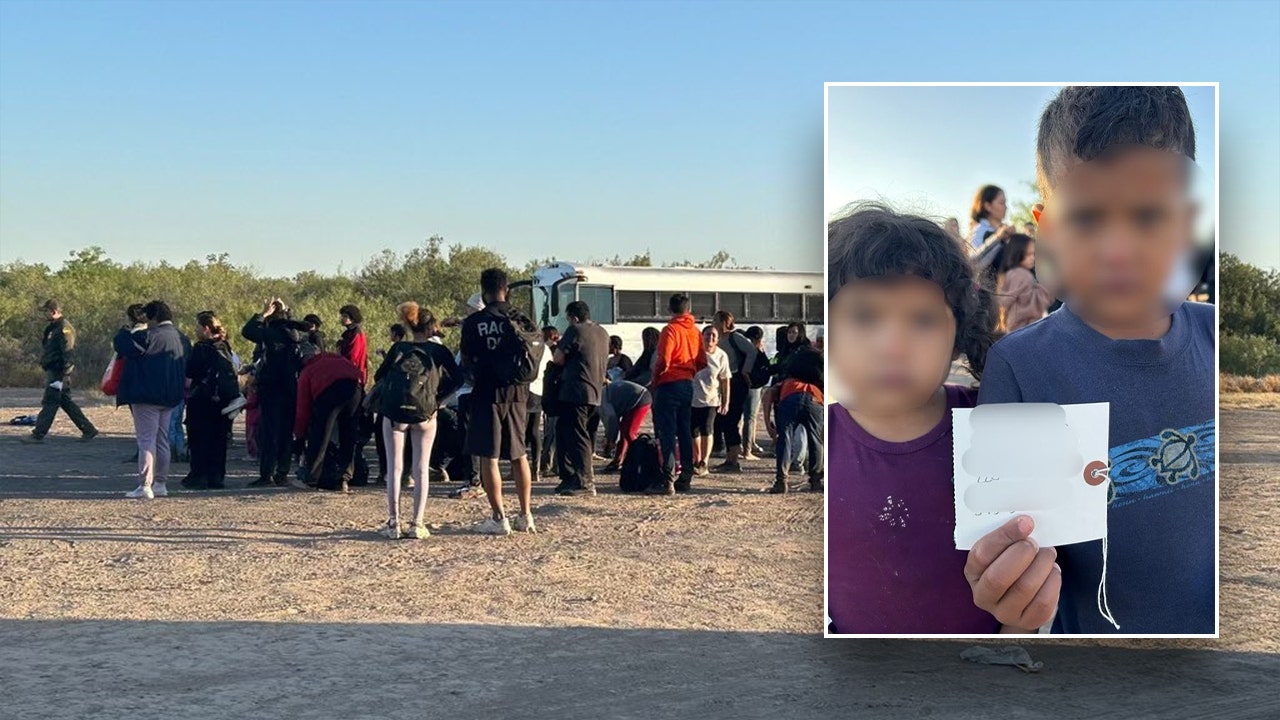






 English (US) ·
English (US) ·